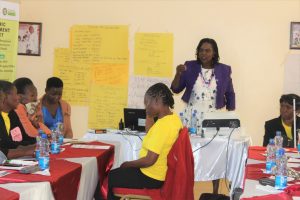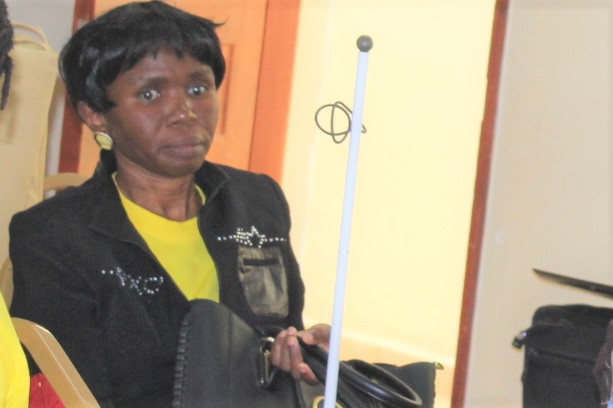Being diagnosed with sight-loss is devastating. You first experience shock and denial. Then anger. Then fear and anxiety. You can be gripped with unending sadness and fall into depression-especially if you do not get the right professional to help you transition into the life you never imagined you could experience. Loss of sight changes your identity and severely affects even how you go by day-to-day life. We talked to Akinyi, a businesswoman from Kenya, who lost her sight in 2010 due to cataracts.
‘I lost my sight ten years ago. Before that, I would experience frequent migraines. Also, my eyes would turn red. The pain became unbearable. I was advised to seek medical attention. I went to the hospital for tests, and I was told I had cataracts in my eyes. I required an urgent surgery’.
Cataracts prevent the normal movement of light from the lens to the retina because of clump-forming proteins in the eye. They cause blurry vision. In severe cases, they lead to legal or total blindness. There are cases when the patient can regain vision through cataract surgery. However, for Akinyi, it was not only too expensive but also late because the problem had extended to the retina.
‘I underwent surgery. By that time, I could read. However, the doctors later discovered that I had a problem with my retina. So, they resorted to removing my natural lens and replacing them with implants. That is how I lost my sight’.
The loss of sight made Akinyi feel like she had lost the opportunity to be productive. By that time, she had a shop where she sold fish and ‘omena’, commonly referred to as dagaa. However, she could not efficiently manage it. After reflecting deeper, she realised that the only thing she lost was the ability;not her role in the society. Therefore, she had to motivate herself into resuming doing business-even if it required doing it differently.
‘Regardless of my disability, I still ensure that I am financially independent. I sell fish and dagaa. I transport my products from Lake Victoria, Kisumu, to the city. Also, I sell ‘mali mali’ (second-hand items)’.
However, Akinyi has had her fair share of challenges. Managing people working for has been hard. Moving around to purchase products for sale is increasingly becoming costly.
‘I face a lot of problems. For example, every time I move, I have to dig deeper into my pockets. Also, some of the people I employ to help me sometimes neither take me nor the business seriously. They come late or even miss work without a valid reason. In such instances, I depend on good Samaritans. They help me sell and also look for the customer’s cash balance’.
Determined and hard-working women like Akinyi encouraged Hope Foundation for African Women, with support from the African Women Development Fund, to hold a three-day financial literacy and business management training. We wish to unlock the potential of women with special needs in business and support their financial independence through knowledge, skills, and financial support.

Akinyi ( in black coat, at the right side) participating in the leadership, business management, and financial literacy training.
‘I have learned that even if I have a special need, I can do anything. I can even fly to Dubai to purchase products to sell in Kenya. I can get married, have children, and live with my husband, like any other woman. I have learned to manage my business. Thank you so much Hope Foundation for African Women’.
You can watch Akinyi speaking on how helpful and impactful the training was by clicking here

Comments(2)-

-

Maryanne Emomeri says
March 13, 2020 at 3:21 pmChallenges will always be there, but we should persist to the end. Good work Akinyi
erotik says
August 24, 2020 at 10:59 amYou do have a fabulous blog thanks. Tyne Griffy Placida